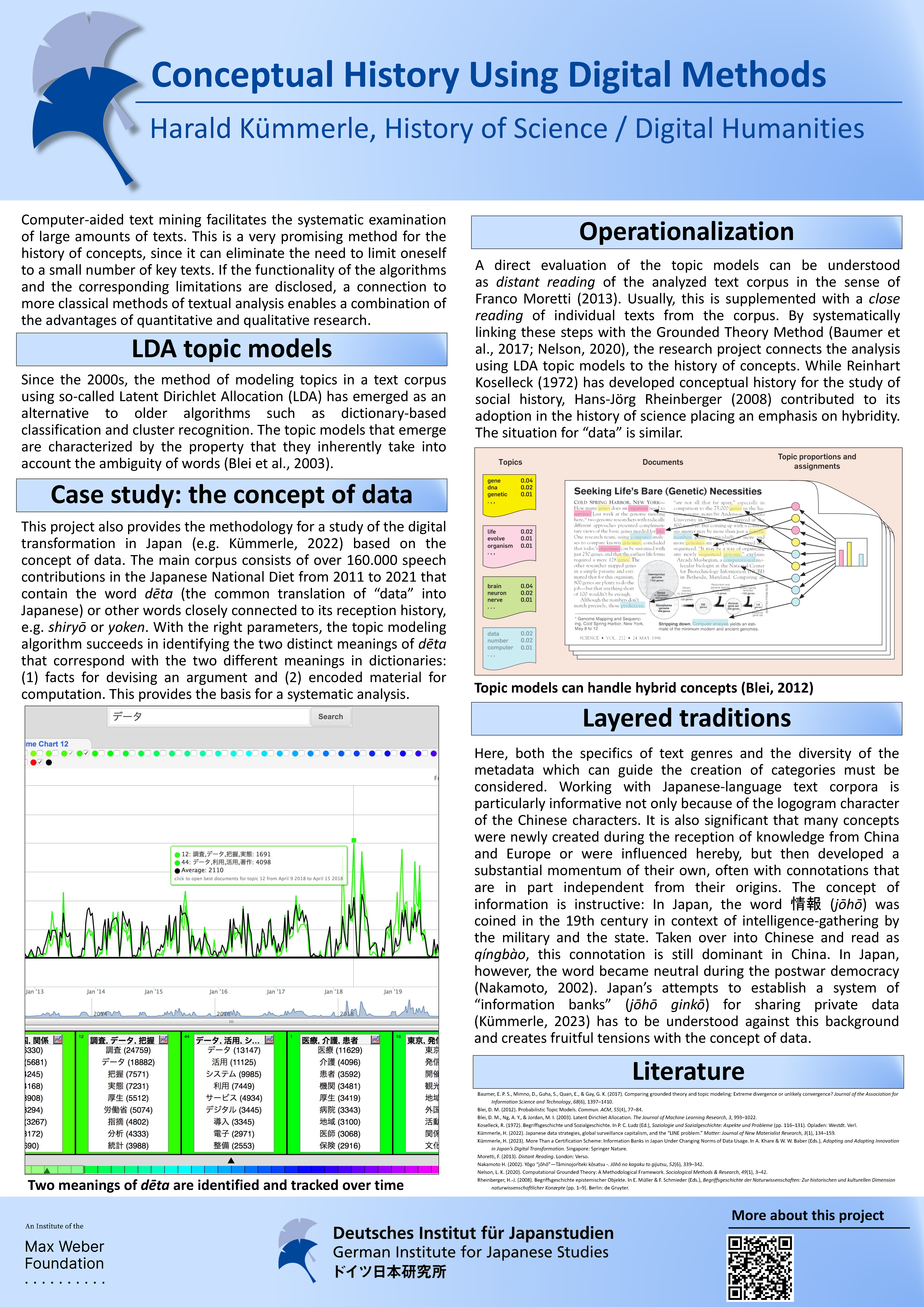Conceptual history using digital methods
January 2020 - December 2024
Computer-aided text mining offers the possibility of systematically examining large amounts of texts. This is very promising for the history of concepts, since it can eliminate the need to limit oneself to a small number of key texts. If the functionality of the algorithms and the corresponding limitations are disclosed, a connection to more classical methods of analysis enables a combination of the advantages of quantitative and qualitative research.
Since the second half of the 2000s, the method of modeling topics in a text corpus using so-called Latent Dirichlet Allocation (LDA) has emerged as an alternative to older algorithms such as dictionary-based classification and cluster recognition. The topic models that emerge are characterized by the property that they inherently take into account the ambiguity of words.
A direct evaluation of the topic models can be understood as distant reading of the analyzed text corpus in the sense of Franco Moretti. Usually, this is supplemented with a close reading of individual texts from the corpus. By systematically linking these steps with the Grounded Theory Method, the research project connects the analysis using LDA topic models to the history of concepts in the tradition of Reinhart Koselleck.
Here, both the specifics of text genres and the diversity of the metadata which can guide the creation of categories must be considered. Working with Japanese-language text corpora is particularly informative not only because of the logogram character of the Chinese characters. Rather, it is also significant that many concepts were newly created during the reception of knowledge from China and Europe or were influenced hereby, but then developed a substantial momentum of their own.
Events
MWS Web Forum Series 'The Digital Transformation'
Digital Humanities in the Max Weber Foundation

 Harald Kümmerle
Harald Kümmerle